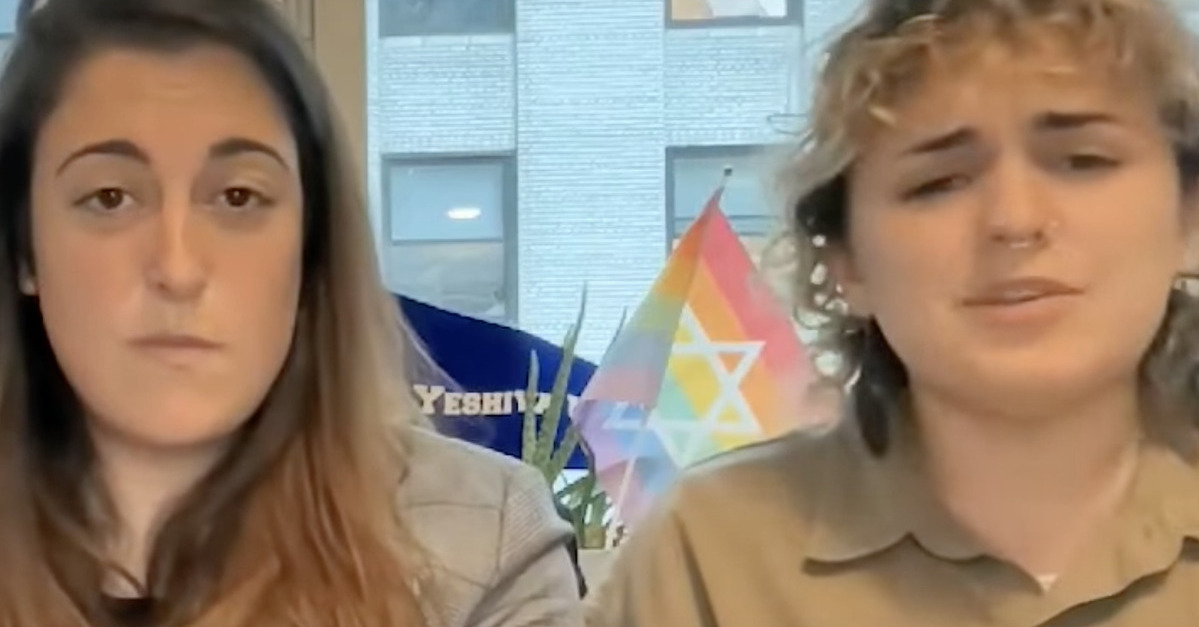
Yeshiva University students discuss the importance of an LGBTQ club on campus.
A New York appellate court ruled that Yeshiva University must recognize its students’ LGBTQ pride group, rejecting the school’s First Amendment arguments of religious freedom and the right to associate.
“The City [Human Rights Law]’s public accommodations provision is both neutral and generally applicable,” a four-judge panel ruled on Thursday.
Though Yeshiva University pointed to the law’s application of exemptions “based on bona fide considerations of public policy,” the judges found that these did not include the school refusing to recognize the pride group.
“Instead, regulations allow for, among other things, senior discounts, age requirements for certain motion pictures, gender-based restrictions for restrooms, rooming houses, and lodging facilities with sleeping rooms or bathrooms used in common, and otherwise require a showing that health or safety would be protected by an exemption,” the appellate court’s order states.
The ruling marks the latest victory for the LGBTQ students since the Supreme Court rejected Yeshiva University’s request for emergency relief.
Siding with the court’s liberals, Justice Brett Kavanaugh found that the university could not turn to the U.S. Supreme Court before New York’s judiciary had its final say. Justice Samuel Alito said that the university would likely win if the highly conservative court found the matter was ripe for its adjudication, rather the New York judiciary’s. The Empire State has issued stinging rebukes of Yeshiva’s First Amendment argument, finding that the university misstated the law and obscured its own history.
In the lower court, Judge Lynn R. Kotler noted that Yeshiva University took a decidedly secular turn since its initial founding to promote the study of the Talmud. The university amended its charter to allow secular degrees and clarify its corporate status as a “non-denominational institution of higher learning.”
In light of that trajectory, Yeshiva no longer met the definition of a religious corporation, the lower court and the appellate court agreed.
“The record demonstrates that Yeshiva already recognizes LGBTQ+ student organizations at three of its graduate schools, which are legally part of Yeshiva’s corporation, has done so for over 25 years, and made clear as early as 1995 that this recognition did not mean Yeshiva endorsed or accepted the views of those student groups,” the appellate court noted. “As such, and in light of Yeshiva’s corporate purpose as an institution of higher education, we find that denial of recognition for the Pride Alliance is not ‘essential’ to Yeshiva’s ‘central mission.'”
The order was handed down from New York’s Appellate Division, First Department, an intermediate court of appeals.
If the university appeals the matter further, Yeshiva must take the case to New York’s highest court — the Court of Appeals — before their options within the Empire State have been fully exhausted.
Americans United for Separation of Church and State President, an advocacy group run by CEO Rachel Laser, celebrated the decision.
“Religious freedom is a shield that protects us – never a sword to harm others. It ensures we all have the freedom to live as ourselves and believe as we choose,” Laser said in a statement. “The court here did the right thing, reminding Yeshiva University that religious freedom is not a license to discriminate and that it must provide all student clubs – including those of LGBTQ students – with equal treatment and safe spaces under New York’s public accommodations law. Today’s decision is a win for true religious freedom.”
YU Pride Alliance’s attorney Katie Rosenfeld celebrated the decision.
“We hope that the University will accept the Pride Alliance’s invitation to resolve the lawsuit by finally recognizing an authentic, student-run, mutually acceptable LGBTQ+ undergraduate student club that operates like all other clubs at YU,” Rosenfeld told Law&Crime.
Yeshiva University’s counsel did not immediately respond to Law&Crime’s email requesting comment.
Read the order here.
(Image via Fox 5/screengrab)
Have a tip we should know? [email protected]